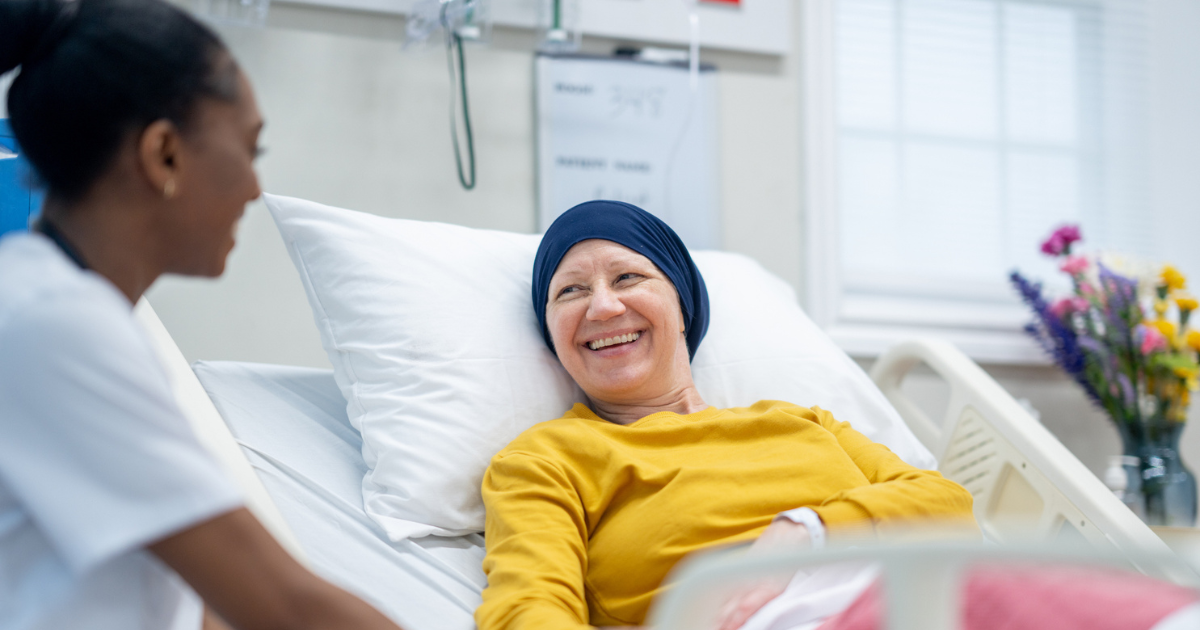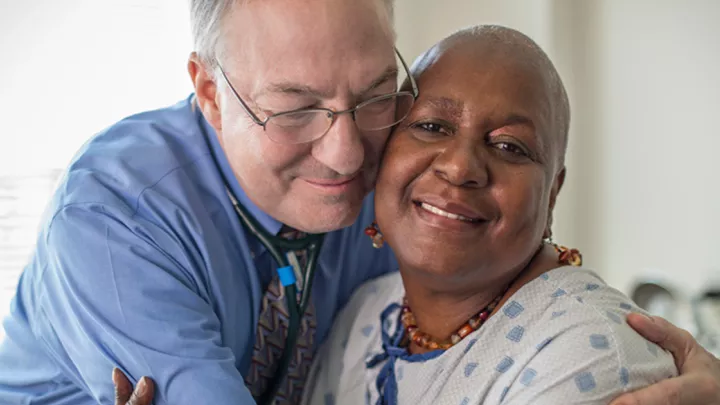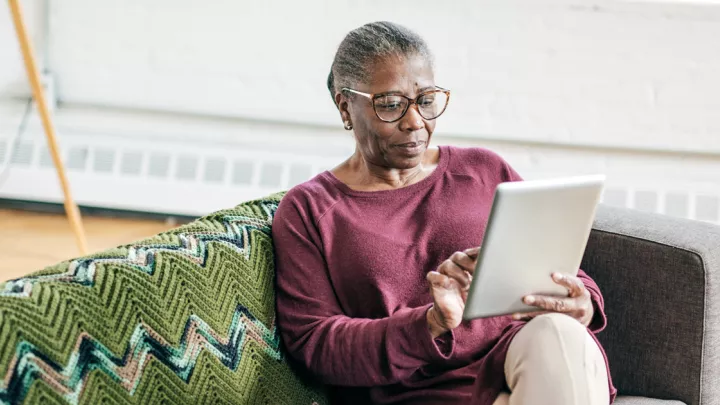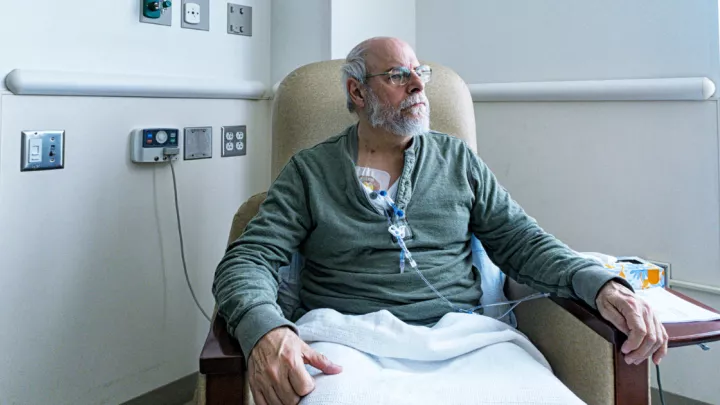The impact of research on cancer care

According to the American Cancer Society, an estimated 5,480 new cases of cancer will be diagnosed every day in the United States. This statistic translates to over 2 million diagnoses in 2024 alone, with breast cancer and prostate cancer at the top of the list.
But there is hope. Thanks to cancer researchers' hard work and dedication, dramatic improvements across the spectrum of cancers have increased survival rates over the past few decades.
Why cancer research important
When a person experiences a cancer diagnosis, it is a scary and uncertain time for them and their loved ones. Clinical research can be life-changing for patients and have an enormous impact on cancer care by finding new potential treatment options and hope for a longer life with no reoccurrence of the disease.
The study of cancer, called oncology, and ongoing cancer research allow for the development of effective detection, diagnosis, treatment and prevention methods. A better understanding of these diseases will help researchers make more progress toward weakening the enormous personal and economic toll that cancer causes in people's lives.
Research helps gather extensive knowledge about biological processes that impact the causes of cancer, its growth, and how it can spread. Cyclical in nature, cancer clinical trials and cancer research breakthroughs and advances result from building on prior observations and discoveries.
The impact of cancer care research
Research Project Coordinator Kacie Flaherty is passionate about cancer research, professionally and personally. Diagnosed with Stage 4 metastatic breast cancer, she is now near her five-year, no-evidence-of-disease anniversary. Being on the front lines of the Stage 4 breast cancer community, Kacie sees firsthand the people relying on the research and trials for lifesaving hope. She is one of the many people behind the scenes making clinical research happen.
“I am in a unique position as both a cancer survivor and employed to bring in clinical trials for the Fred & Pamela Buffett Cancer Centers,” says Flaherty. “I am highly motivated in my work because I know exactly what it’s like to be sitting on the other side, praying for that clinical trial to save your life. My journey was difficult, and my journey will never end.”
With a focus on solid tumor research in oncology for various cancers, Flaherty is with each project for the life of the study from beginning to end. She hopes the research she helps coordinate today will help people impacted by cancer in the future.
“Every friend I see whose disease has progressed spurs me on to work harder and advocate to keep the trials moving forward,” adds Flaherty. “My hope is that patients hoping for more time have the clinical trials available when needed. I pour myself into helping other cancer patients because if I can make one person’s journey easier by sharing my story, showing up, and giving my time, it’s worth my time to do it.”
According to Flaherty, the scope and impact of research can be far-reaching, including:
- Offering hope to newly diagnosed patients for less harsh treatments and treatments with greater success rates.
- Offering patients with advanced cancer treatments that will give them more time with fewer side effects and better symptom management.
- Providing the opportunity to be one of the first to try one of the latest medical advancements as part of a treatment strategy.
- Working towards a goal to have no evidence of disease after treatment.
- Learning more about cancer causes and disease progression.
- Embracing new, innovative treatments and therapies.
- Looking into new lifesaving medications and drug interactions.
- Discovering new or improved symptom relief or mitigation.
- Taking advantage of survivorship trials.
- Registries for long-term follow-up and future studies.
- Funding for new cancer care studies that will benefit future patients.
“When it comes to clinical trials, there’s a lot we don’t know,” adds Flaherty. “We always learn more from a study, even if a new treatment didn’t work as expected or as efficiently as we hoped. No two stories are exactly the same, and every patient is unique. It takes a lot of research to figure out what works.”
Advice for people newly diagnosed with cancer
Coming to terms with a new cancer diagnosis can be overwhelming and confusing. It takes time to understand what is happening and determine what steps to take next.
Flaherty endeavors every day to bring hope to patients newly diagnosed or those continuing to battle the disease. She offers some advice for patients based on her personal and work experience.
- Be your own advocate. Fight for what you want. It’s your life and your choice on how to proceed.
- Be sure you understand what’s happening. Ask questions until you fully understand and have your questions answered.
- Keep your support system close, especially others who have or are walking the road you’re walking.
- Consider a palliative care specialist. They are your quality-of-life physicians who will listen, help interpret information, answer questions, help you navigate side effects, and explain the why behind treatment recommendations.
- If a clinical research study is open to you, consider it. You are in charge of what you feel you can and cannot do, and you can withdraw at any time.
- If you participate in a clinical trial, you will never receive less than the best standard of care.
- If you’ve been diagnosed with cancer, don’t wait to do all the things you want to do. Make the memories and do the things that matter to you.
Learn More
Get more information about Nebraska Medicine cancer clinical trials.
Find free help researching your condition.
See how the Fred & Pamela Buffett Cancer Center - Nebraska Medical Center researchers and clinicians are redefining the fight against cancer and changing lives.
Where you seek cancer care matters. To schedule an appointment with one of our cancer specialists, call 402.559.5600.







